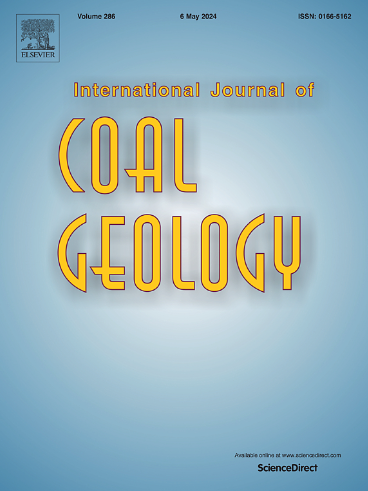Mechanisms of strain rate-dependent response of naturally fractured coal
IF 5.7
2区 工程技术
Q2 ENERGY & FUELS
引用次数: 0
Abstract
The mechanical characteristics of naturally fractured coal under strain rate-dependent loadings can affect engineering activities such as coal seam gas production, gas drainage and CO2 sequestration. While the macro-(core) scale strain-rate dependent response of fractured coal has been investigated previously, the micro-scale mechanisms driving this core-scale behaviour particularly under recoverable (elastic) bulk deformation remains unexplored. In this study, we conduct a series of systematic multi-scale experiments to shed light on the mechanisms controlling the strain rate dependency of coal.
Core-scale triaxial tests are initially performed on coal specimens under isotropic and deviatoric loading conditions at different strain rates to identify their strain rate dependency. The results indicate a clear strain rate dependency in dry specimens only under isotropic loading, where the bulk modulus increases with increasing strain rates. Notably, unloading of the specimens shows a considerable strain rate-dependent energy dissipation without any permanent deformation in these isotropic loading tests.
To explore the identified micro-scale processes causing the energy dissipation and strain rate-dependency, a series of micro-scale mechanical tests are conducted on a coal joint specimen, coupled with microscopy and digital image correlation (DIC) analysis. The results from triaxial and micro-scale tests indicate that the asperity damage within pre-existing fractures during their closure is the primary driver of strain rate dependency at core-scale, without inducing any permanent deformation in bulk specimens.
To gain further insights into the relationship between asperity damage and energy dissipation under varying strain rates, a series of normal stress loading tests are conducted on identical synthetic joint specimens. These tests confirm a strong correlation between asperity damage and energy dissipation in the identical specimens, demonstrating that slower strain rates lead to greater asperity damage, higher energy dissipation, and reduced stiffness. These findings substantially enhance our understanding of asperity damage-driven strain rate dependency of fractured rock through the evolution of energy dissipation.
自然破碎煤应变速率相关响应机制
自然裂隙煤在应变速率相关载荷作用下的力学特性会影响煤层瓦斯开采、瓦斯抽放和CO2封存等工程活动。虽然先前已经研究了裂隙煤的宏观(岩心)尺度应变率相关响应,但驱动这种岩心尺度行为的微观尺度机制,特别是在可采(弹性)体变形下的微观尺度机制仍未探索。在这项研究中,我们进行了一系列系统的多尺度实验,以揭示控制煤的应变速率依赖的机制。首先对煤样进行了不同应变速率下各向同性和偏差加载条件下的岩心尺度三轴试验,以确定其应变速率依赖性。结果表明,只有在各向同性加载下,干燥试样的体积模量随应变速率的增加而增加,且应变速率明显依赖于应变速率。值得注意的是,在这些各向同性加载试验中,试件的卸载显示出相当大的应变速率相关的能量耗散,而没有任何永久变形。为了探索导致能量耗散和应变速率依赖的微尺度过程,对煤节理试样进行了一系列微尺度力学试验,并结合显微镜和数字图像相关(DIC)分析。三轴试验和微尺度试验的结果表明,在岩心尺度上,先前存在的裂缝在闭合过程中的粗糙性损伤是应变速率依赖的主要驱动因素,而不会引起体积试样的任何永久变形。为了进一步研究不同应变速率下的粗糙损伤与能量耗散的关系,对相同的合成节理试件进行了一系列正应力加载试验。这些试验证实,在相同的试件中,粗糙损伤与能量耗散之间存在很强的相关性,表明较慢的应变速率导致更大的粗糙损伤、更高的能量耗散和刚度降低。这些发现极大地增强了我们通过能量耗散的演化来理解裂纹损伤驱动的应变速率依赖性。
本文章由计算机程序翻译,如有差异,请以英文原文为准。
求助全文
约1分钟内获得全文
求助全文
来源期刊

International Journal of Coal Geology
工程技术-地球科学综合
CiteScore
11.00
自引率
14.30%
发文量
145
审稿时长
38 days
期刊介绍:
The International Journal of Coal Geology deals with fundamental and applied aspects of the geology and petrology of coal, oil/gas source rocks and shale gas resources. The journal aims to advance the exploration, exploitation and utilization of these resources, and to stimulate environmental awareness as well as advancement of engineering for effective resource management.
 求助内容:
求助内容: 应助结果提醒方式:
应助结果提醒方式:


